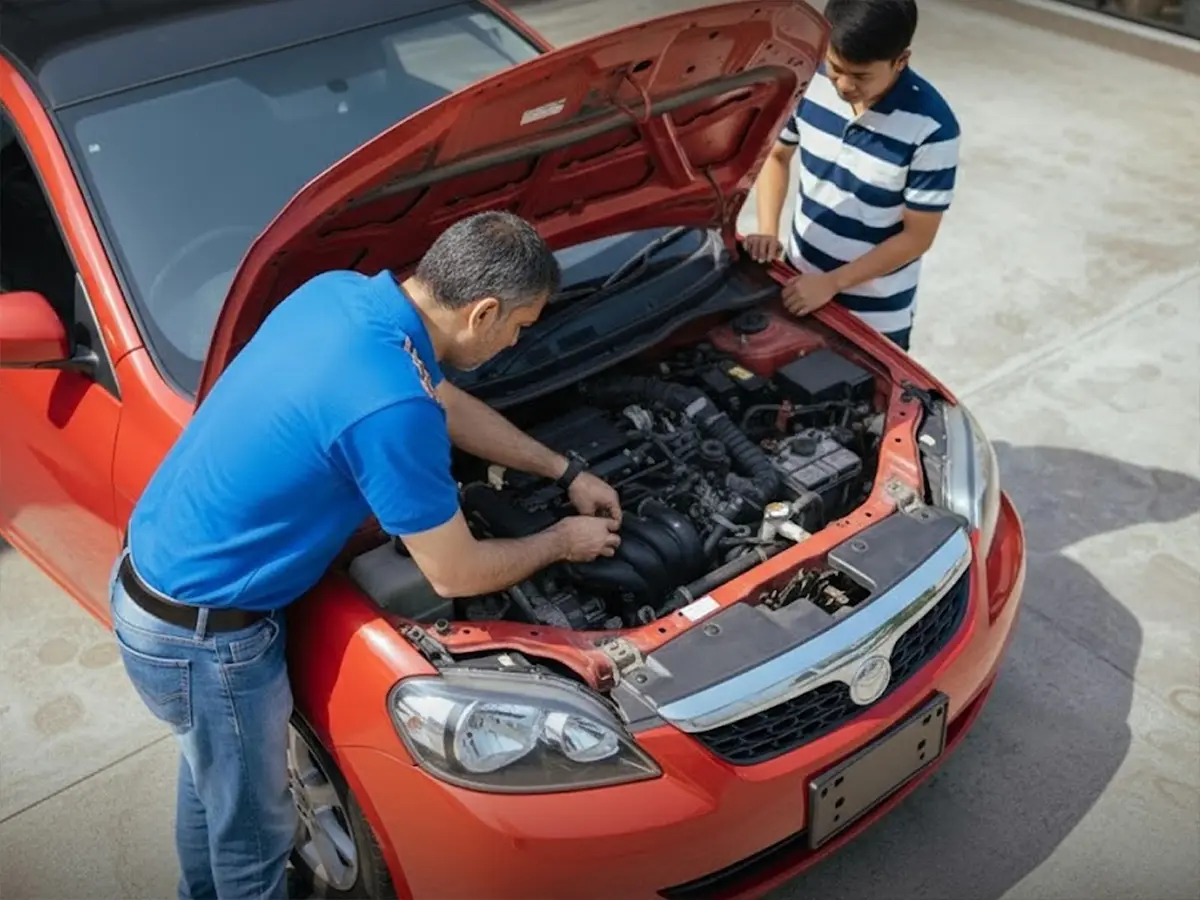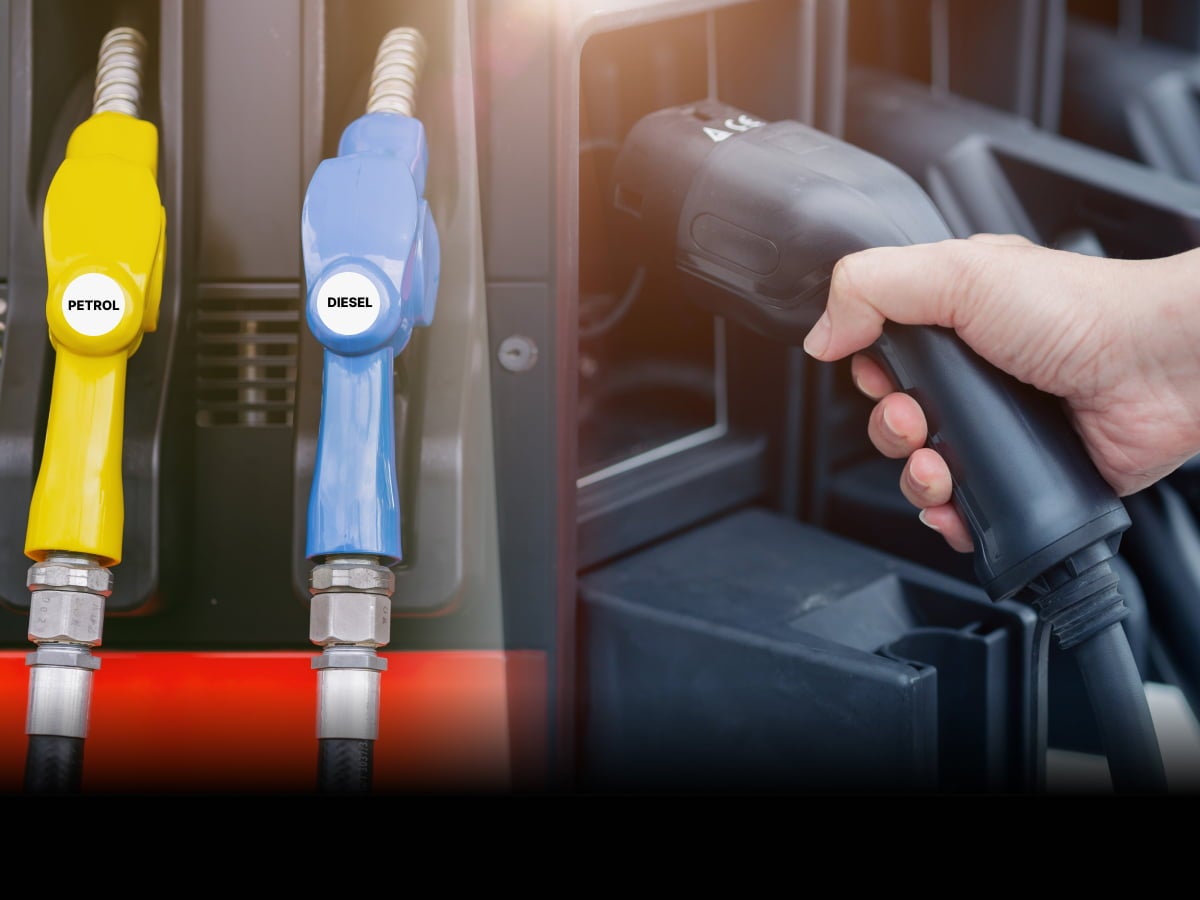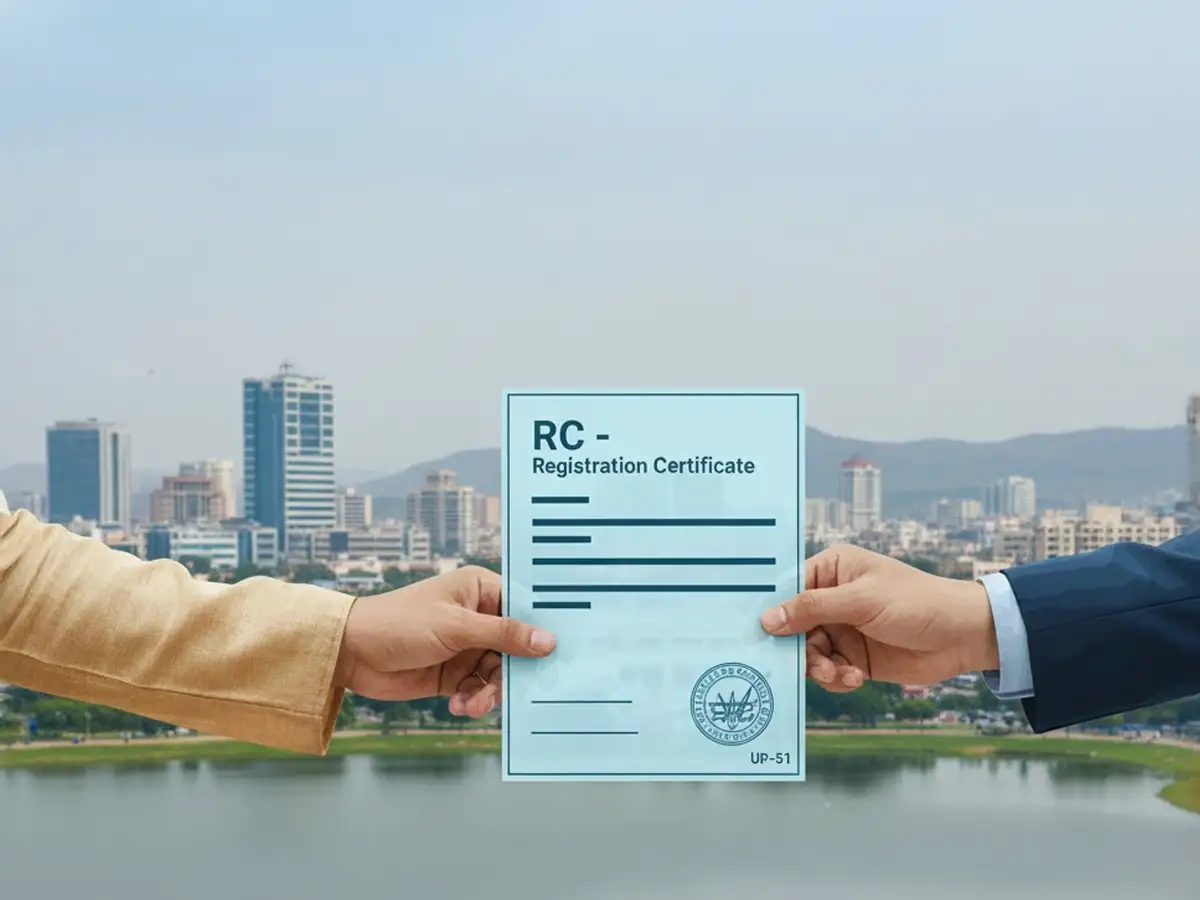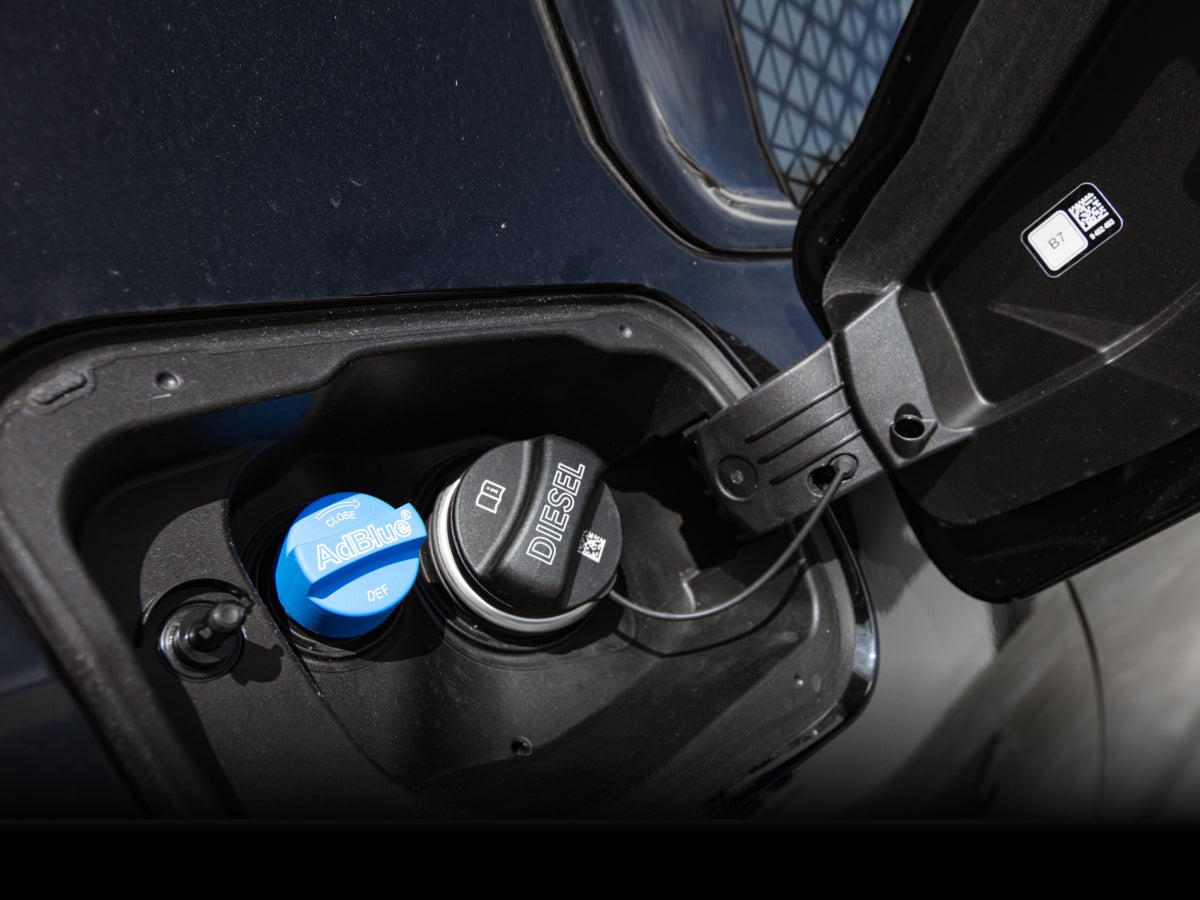

Why BS6 cars need diesel exhaust fluid
- 1Diesel exhaust fluid is a major step towards curbing diesel emissions
- 2DEF works in conjunction with Selective Catalytic Reduction technology
- 3All large diesel commercial vehicles manufactured after April 1, 2020 need DEF
Diesel-fueled vehicles have been around for a long time in India, and it is not hard to see why it’s been the choice of fuel for a number of vehicle owners. Compared to their petrol-engined counterparts, diesel-powered vehicles may be more expensive to purchase, but they are generally known to have more torque and be more fuel efficient. In principle, these are great traits to have if you’re planning to haul heavy loads for longer distances. That said, it has gotten a bad reputation as a ‘dirty’ fuel, thanks to the associated plumes of diesel exhaust fumes.
To help manage emissions, manufacturers employ various technologies to reduce tailpipe emissions for diesel-powered vehicles. While all diesel vehicles require diesel particulate filters, some larger, heavier vehicles need an additional cleaning agent, and that’s where diesel exhaust fluid (DEF) in diesel cars comes in.
At this point, the obvious questions that need to be fielded are: what is DEF and how exactly does it work? What happens if you don’t use DEF in diesel cars? Is it a law to use DEF in India? Is DEF expensive to purchase? Our guide to everything you should know about the DEF additive will field those questions and a lot more.
Become a part of the official Cars24 auto community; CLUTCH, where we host lively auto discussions, updates, and more.
What is DEF (Diesel Exhaust Fluid)?
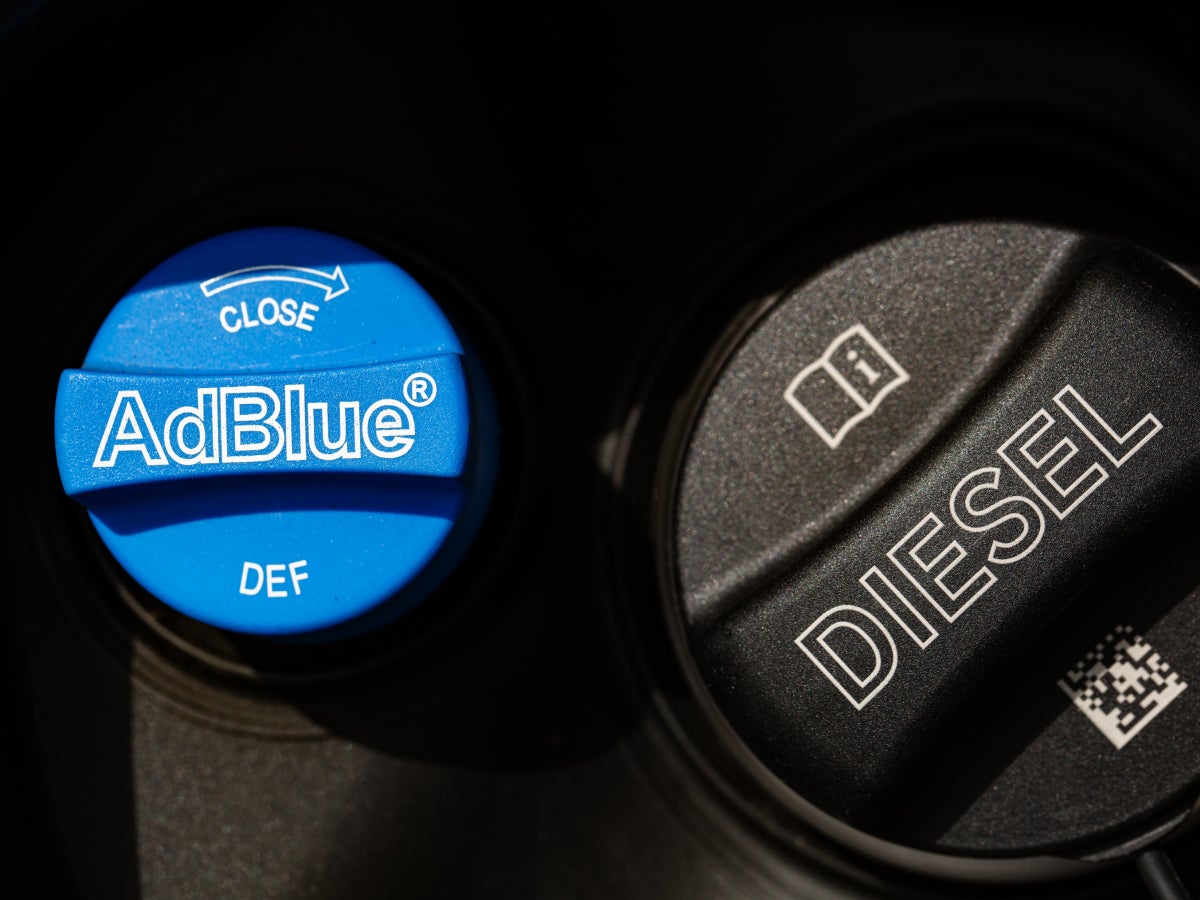
In principle, Diesel Exhaust Fluid (DEF) is a clear liquid that’s used to make diesel-powered vehicles pollute less. Since diesel fuel inherently produces more emissions than petrol, this is a necessary step to curb environmental and emission hazards worldwide. Emission from diesel-powered vehicles can jeopardise human health and damage the ozone layers. This is a big concern especially for long-haul diesel trucks across the country.
Understanding the basics of DEF
Diesel Exhaust Fluid (DEF) is an environmentally friendly substance that’s made up of deionized water and urea. Urea, also known as carbamide, is a naturally-occuring substance most frequently found in mammal urine. It is effectively non-toxic, as well as being pH neutral. Car manufacturers use urea for its ability to bind to certain chemicals, most notably nitrogen. This makes it an excellent choice for capturing nitrogen compounds in diesel exhaust.
DEF is injected into the hot exhaust gas stream, causing the water to immediately boil and release the urea. From there, the hot urea degrades into isocyanic acid and ammonia, then the isocyanic acid hydrolyses into carbon dioxide and more ammonia. Then, the ammonia strips the oxygen from the NOx, which then combines with the carbon dioxide to create water. In the end, all that’s emitted is water and nitrogen.
DEF and Selective Catalytic Reduction (SCR) technology
A Selective Catalytic Reduction (SCR) is a critical component for diesel exhaust fluid to function optimally. . This is a fuel and cost-efficient technology to control diesel engine emissions. Not only does it bring diesel emissions down to almost zero, but it also helps save fuel in the region of 3-5%.
SCR allows nitrogen oxide reduction to occur in an oxidising atmosphere. It is a selective method because it uses ammonia as a reductant to reduce the NOx levels in a catalyst system. The pollutants, mainly NOx, are converted into common molecules we breathe: water, nitrogen, and a small amount of carbon dioxide. It’s in this process that DEF comes in: the urea it contains quickly hydrolyses to introduce oxidising ammonia in the exhaust stream.
Benefits of Diesel Exhaust Fluid (DEF)

There are a number of benefits to using DEF. In no particular order, they include:
1) Diesel engines produce NOx, which is a poisonous gas that is formed when fuel is burned at high temperatures. DEF actively works to reduce NOx emissions from diesel exhaust.
2) DEF helps improve fuel efficiency by up to 5%.
3) DEF helps protect engine components from the damaging effects of NOx, which can extend the life of diesel engines.
4) DEF has been reported to reduce the need for maintenance and the probability of a vehicle breakdown.
5) Most importantly, DEF reduces particulate emissions and improves air quality.
DEF in India: Current scenario

Adoption of DEF in India’s automotive industry
Bharat Stage 6 norms came into effect in India from April 1, 2020. Replacing the previous BS4 norms, BS6’s main aim is to bring down and restrict the emissions from the tailpipe to 1.0g/km of carbon monoxide. BS6 fuels consist of less sulphur and involve more additives. This is crucial as all vehicles equipped with a BS6-compliant engine rely on SCR, the advanced emissions control unit.
Government regulations and DEF in India
The Indian government has mandated the use of DEF in heavy-duty commercial vehicles manufactured after April 1, 2020. As for private vehicles in India, only vehicles that have an engine capacity larger than 2.0 litres have a provision for SCR and DEF. This is a crucial point to note; if you buy a BS6 vehicle that has a diesel engine capacity of less than 2.0 litres with SCR tech, there is a high likelihood of your vehicle not driving optimally if you fill the wrong fuel. Always ensure that you tank up from reputed petrol pumps.
How DEF works in cars?

The main aim behind DEF and SCR is to reduce the amount of emissions emitted from a vehicle. In an SCR-equipped vehicle, the process begins when the exhaust gas from the engine is routed through a particulate filter. This is done to catch all the ash and soot that’s generated from burning diesel. Then, the exhaust gas travels past a nozzle which sprays diesel exhaust fluid into the stream of gases.
The hot exhaust gas and DEF then enter the catalytic converter where the urea from the DEF and the exhaust gas react with a variety of metallic compounds to convert nitrogen dioxide and monoxide into nitrogen and water. Both these results are safe for humans, needless to say. Most modern diesel engines use SCR in combination with exhaust gas recirculation and a diesel particulate filter (DPF) to reduce emissions.
What is a diesel particulate filter?

A diesel particulate filter (DPF) is an exhaust aftertreatment device that traps particulate matter such as soot and ash. This soot and ash needs to be periodically burned off to regenerate the filter. The regeneration process burns off the excess soot deposited in the filter, which prevents harmful exhaust emissions (like the black smoke you commonly see emitted from diesel vehicles under hard acceleration).
DEF consumption rates
The amount of diesel exhaust fluid, trademarked as AdBlue in India, entirely depends on the size of the vehicle and its fuel efficiency. Typically, the AdBlue tank’s capacity varies from 5-20 litres (more, if it’s a commercial vehicle). All BS6 diesel vehicles will have the capacity mentioned near the fuel tank lid or in the owner’s manual.
As for the exact measurement of AdBlue in your vehicle, the car’s instrument cluster will typically have a separate indicator that displays the AdBlue level, so you will know when it needs a top-up. It should be noted that authorised workshops usually take care of the AdBlue level during the vehicle’s service, but it nevertheless pays to keep an eye out for your car’s AdBlue level periodically.
Practical considerations for car owners

Given diesel’s ‘dirty fuel’ tag, the fact of the matter is that diesel exhaust fluid is more than just an attempt to clean up the name. It’s a necessity for diesel-powered vehicles that has gone a long way toward making them more eco-friendly. It requires more effort on part of the vehicle owners, but the upshot of having your car with the magic of SCR and DEF far outweighs the short-term struggles of having to remember to keep it topped up. On that note, there are a few things that car owners should keep in mind regarding DEF.
How to refill DEF in your car?
Different vehicles have their DEF fillers located in different areas. As an instance, the AdBlue reservoir filler cap is located under the bonnet on the right hand side in Land Rover vehicles sold in India. The exact location will be mentioned in the vehicle’s owner’s manual.
Refilling AdBlue or DEF in your vehicle is also a simple process. The manual will let you know what the car’s DEF capacity is. Once you have that noted, simply pour the DEF into the designated reservoir until it is full. If you are still unsure about filling DEF yourself, then your vehicle’s authorised workshop is fully equipped to top it up for you. In fact, DEF top-ups are carried out at scheduled services, so it needn’t be something you have to worry about too often. So long as you send your vehicle in for a service on time, the service representative will take care of it.
Where to buy DEF in India?
DEF in India can be purchased from a number of places. If you prefer buying it online, retailers like Amazon and Indiamart will sell you DEF from brands like Octonol, Mak Lubricants, and even Tata. There are a number of brands that you can opt for, but the ideal one to pick would be the one recommended to you by your car’s manufacturer.
Aside from that, you can also go to your local fuel bunker and purchase DEF. As an instance, HP sells their own branded DEF at their petrol pumps. As for their price, it varies depending on the brand. For a reference, Octonol sells a pack of two (totaling 10 litres) for ₹1,720, which comes to about ₹170 per litre. This may seem expensive compared to what you would spend on fuel, but it should also be taken into account that a litre of DEF is consumed a lot slower on average than a litre of fuel.
How to store and handle DEF?
Considering its price and how often it needs to be added to your vehicle, there is understandably a temptation for some vehicle owners to stock up on a significant amount of DEF, to avoid repeated trips to a petrol pump to purchase it. In theory, this is a good idea, but there are a few points to keep in mind here.
For a start, DEF has a shelf life. At some point, the urea degrades and becomes less effective. The most detrimental factor for DEF is heat; the hotter the place it’s stored, the faster its degeneration. Generally speaking, DEF should not be stored in places that regularly exceed 22 degrees Celsius. Naturally, storing DEF outdoors is something you should never do, as it is damaged by high heat and UV rays. Conversely, DEF can easily be stored in colder areas. It freezes at -11 degrees Celsius, which is fine, and even if it dips below that, it can easily be thawed before use. What you must keep in mind is that DEF expands by around 7% when frozen, so choose an appropriate container if you expect temperatures to go below its freezing point.
Titanium, stainless steel, rubber, or plastic are the only suitable containers to store DEF. Materials like copper, brass, or nickel containers have corrosive effects on DEF and should be avoided. Once contaminated, there is no way to purify DEF.
Common myths about DEF
As with anything that’s new or foreign, there are bound to be some myths associated with DEF until it becomes normalised. Some of these include:
1) DEF damages diesel engines: This statement is completely false. DEF enhances performance and reduces emissions in SCR systems.
2) Adding more DEF will increase performance: With DEF, it is crucial to add the right amount. If you overdose, it can lead to SCR system issues, which could eventually end up leading to a vehicle breakdown.
3) DEF is harmful to humans: DEF is primarily made up of urea and deionised water, making it non-toxic and safe to handle.
4) DEF quality is irrelevant: As with overdosing, getting a low quality DEF can be detrimental to your SCR’s functioning. In fact, it could even lead to increased emissions, which defeats the entire purpose of a high quality DEF. Always use DEF recommended by the vehicle manufacturer.
What happens if you run out of DEF?
Manufacturers typically have measures in place to ensure equipped vehicles cannot run without DEF. Some carmakers add a gauge in the instrument cluster, so that you’re always aware of the DEF level in your vehicle, while others simply have a warning light that goes off when it’s time to refill DEF.
In the situation that your car does run out of DEF, however, there are one or two things that can happen depending on the kind of vehicle you’re driving. The most common is that the engine power gets cut and the speed limited. This essentially means that you will have to limp your car over to the nearest place that sells DEF. Some manufacturers go a step further, though. If the DEF runs out in certain vehicles, the car will not start until it’s topped up. To understand which category your vehicle falls in, it’s best to consult your car’s manual.
Can DEF freeze in cold weather?
DEF is very sensitive to heat and should never be stored in places where the ambient temperature rises beyond 22 degrees Celsius. However, when it comes to colder temperatures, there is no adverse reaction to DEF. It will freeze at -11 degrees Celsius, but it can be safely thawed after that without any risk of contamination or losing its purity. However, when DEF freezes, it expands by approximately 7% due to the high water content. Keeping this in mind, an appropriate container for the DEF should be chosen.
Environmental concerns with DEF production
It should come as no surprise that DEF production has minimal environmental impact. This is because the raw materials and production processes are carefully controlled. For a start, the urea in DEF is derived from natural gas or coal and must meet strict purity standards. Deionised water is used to prevent mineral and ion contamination.
That said, it should be noted that getting rid of a large quantity of DEF isn’t as easy as dumping it in the ground. Here, soil or water contamination is a real concern, and it should be avoided. If, however, a small portion is spilled while topping up your vehicle, that is no reason to worry. Small quantities of DEF can easily be wiped dry with an absorbent cloth. If DEF has been contaminated, small quantities can also be poured down a drain. The only thing to keep in mind is that after pouring the contaminated DEF down, it should be followed by a sizable amount of regular water to wash off all the contaminants.
Conclusion
For a long while, diesel-fueled vehicles earned a bad reputation for running what was essentially deemed a dirty fuel thanks to the accompanying emissions. Needless to say, the advent of DEF and SCR are much-needed interventions if we were to achieve our goal of becoming a zero-emissions country in the near future. While its incorporation, have made cars expensive, potentially even wiping out cheap diesel cars, but DEF as a technology is definitely an important and much needed addition.
A big reason why DEF and SCR were desperately required in the first place was because our country, and the world in general, was never going to abandon diesel engines in the short-to-medium term. Our dependence on them is simply too high thanks to their efficiency and reliability to move not just people, but goods. Until we come up with a more long term solution, though, diesel vehicles here to stay.
Frequently Asked Questions
Expand all



